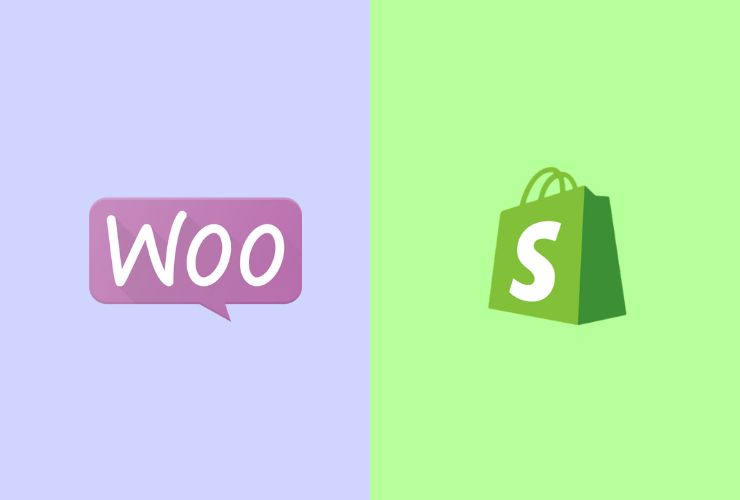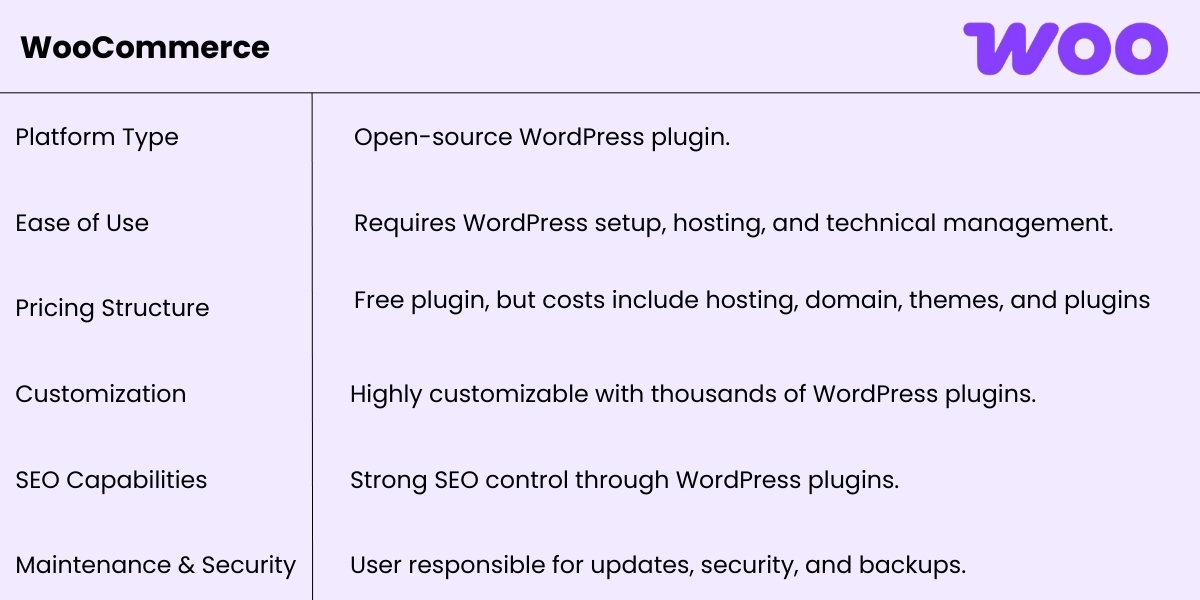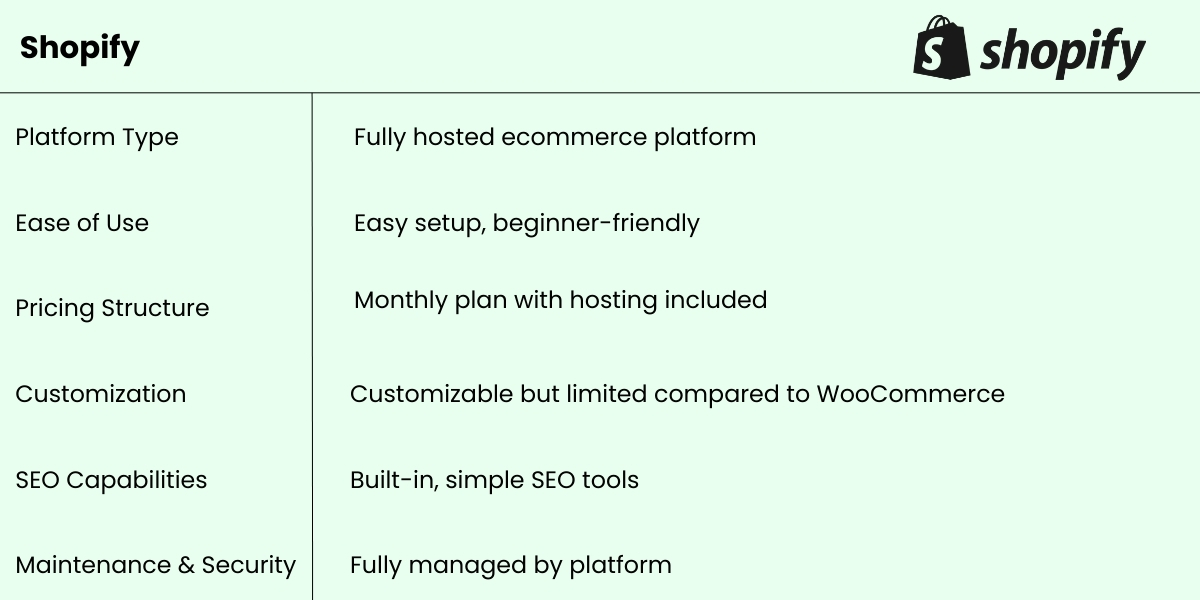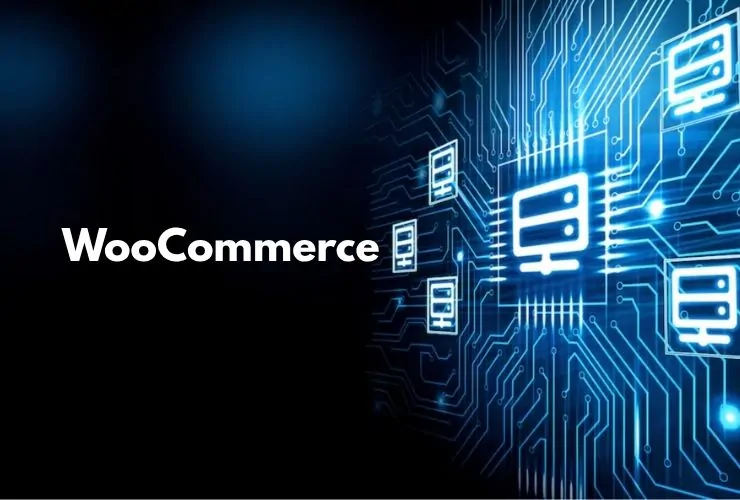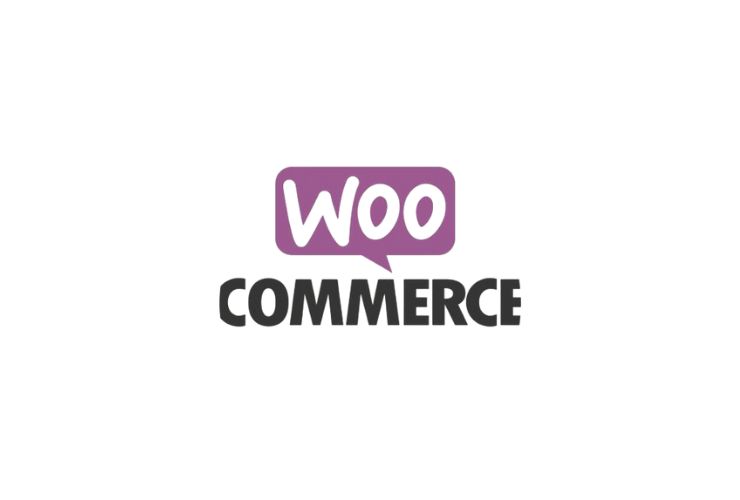If you’re starting to build an online store, you’ll probably be doing research on two names in particular: WooCommerce and Shopify. Both are big players in the eCommerce space, with millions of stores all over the world. But, they both operate on very different principles in terms of flexibility, pricing models, and how they sell products.
In this full comparison of WooCommerce vs Shopify, we will go through WooCommerce and Shopify in several different categories. This will allow you to make an informed decision depending on your budget, technical ability, and end goals.
1. What exactly is WooCommerce?
WooCommerce is an open-source WordPress plugin for turning a website into an online store. WooCommerce provides a high level of control over the store, as well as a high degree of customization, and is a preferred solution for developers and companies that are already using WordPress or need custom functionality.
Benefits of WooCommerce:
- Total Control: You own your site and control every aspect down the the nittiest of details.
- Cost: The WooCommerce plugin is free, you pay for hosting, themes, and add-ons.
- Extendable: There are thousands of free and premium extensions and themes available.
- SEO: Because WooCommerce is built on WordPress, it has strong SEO capabilities; WordPress is widely considered the best SEO platform.
Drawbacks of WooCommerce:
- Technical Responsibility: You need to manage hosting, security, backups, and updates.
- Learning Curve: Once you get it, it is not complex, but for people that don’t have prior WordPress or development experience, it can be quite complicated.
2. What is Shopify?
Shopify is an easy to use eCommerce solution that is completely hosted for you! This means you do not have to worry about the technical aspects of forming an online store; instead, you can think of products, marketing and scalability!
Benefits of Shopify:
- All-in-One Solution: Hosting, SSL, updates & Security are ALL included!
- Easy to Use: No coding needed as it is 100% drag-drop
- Built-In Tools: Inventory tracking, analytics, and POS are all built-in
- Support: 24/7 customer support; chat, phone, and email support.
Cons of Shopify:
- Recurring Costs: Starting at $39/month. Higher tiers have additional features.
- Transaction Fees: If you’re not using Shopify Payments to process your payments, you’re also going to be paying costs for the transaction itself.
- Limited Ability to Customize: You’re limited to what Shopify allows you to do unless you use its API’s or have the Shopify Plus plan.
3. Price Comparison
WooCommerce: The plugin is free, but you’ll also have to pay for web hosting, a domain name, SSL certificate, and optionally themes or extensions. Costs vary based on what you choose, but usually it’s less expensive in the long term.
Shopify: Costs $39/month to get started with the standard features. Adding premium apps, themes, and other payment gateways (unless Shopify Payments is used) that will incur extra costs.
Verdict: WooCommerce is cheaper if you have technical skills. Shopify is more convenient than WooCommerce, just monthly costs ongoing, so you will pay more for the convenience.
4. Customization and Flexibility
WooCommerce: Offers almost limitless design and functionality choices, especially because you have access to 100s of thousands of WordPress themes and plugins. Great option for businesses who need specialized, highly tailored stores.
Shopify: Good for basic customization through its theme editor. Not nearly as flexible otherwise and usually requires the hiring of a developer or moving to Shopify Plus for more advanced customization.
Verdict: If customizability and flexibility are key, go WooCommerce. If you want simplicity, then Shopify is a better option.
5. Payment Gateways and Fees
WooCommerce: Payment integration with WooCommerce will allow you to work with more payment gateways such as PayPal, Stripe, Square, etc., often to completion with no other fees on different platforms.
Shopify: Supports many payment gateways as well unless you choose not to use Shopify payments and are forced to incur additional fees.
Verdict: Ultimately a lack of additional fees with WooCommerce may mean it is the better solution for you financially and greater overall control.
6. SEO and Content Marketing
WooCommerce: WooCommerce is primarily built on WordPress which is known for its great SEO and offer a multitude of blogs. You can create an optimized product page, blog, and landing pages with ease.
Shopify: While it too offers good SEO on the whole it has basic functions which include a customizable title, customizable meta description, and customizable URLs. Shopify comes if you would like to blog but offers no where near the content WordPress offers.
Verdict: WooCommerce is the clear mark for SEO and content-driven marketing.
7. When to Use WooCommerce?
Choose WooCommerce if:
- You already use or set on WordPress.
- You are looking for a custom-built store with more of a unique and functional feel.
- You prefer ownership and controlling what goes on your site.
- You are comfortable self managing your own web hosting, security and maintenance, or have a group that is.
8. Who Should Use Shopify?
Consider Shopify if you:
- Are looking for an easy and convenient all-in-one eCommerce solution
- Have no technical expertise or don’t want to have concerns about hosting and maintenance
- Are looking to launch quickly or want to run a drop shipping store
- Don’t mind paying a bit more for less technical effort and assistance
Conclusion: WooCommerce or Shopify?
Both WooCommerce and Shopify are excellent platforms, so it is ultimately up to you to choose the right solution for you:
If you prefer flexibility, control, and more cost-effective, WooCommerce is a better long-term option – and is usually better suited to businesses that have unique needs or are already using WordPress.
If you prefer a simple, fast, and convenient option, Shopify is a good option – especially for entrepreneurs that want to start selling quickly with no technical expertise.
Need Assistance Setting Up WooCommerce or Shopify?
At Empirical Edge, we build and setup high-performance eCommerce stores that convert on WooCommerce or Shopify. Whether you’re
starting fresh or migrating to a new platform, we can help:
- Made-to-Measure Development on WooCommerce
- Shopify Store Setup and Theme Development
- Performance Optimization and Security
- Plugin/App Integrations
- Ongoing Maintenance and Support
Let’s work together to make your online store not just work — but awesome.
Ready to Scale Your Online Store with the Right Platform?
Whether you choose the flexibility of WooCommerce or the simplicity of Shopify, our ecommerce experts can help you design, launch, and optimize your online store for performance and growth.
Frequently Asked Questions
WooCommerce is a WordPress-based, open-source ecommerce platform with deep customization, while Shopify is a fully hosted, all-in-one ecommerce solution focused on simplicity and ease of use.
WooCommerce offers more advanced SEO control through plugins and customizable URLs, whereas Shopify provides built-in SEO features with faster setup but less granular control.
WooCommerce itself is free, but you’ll need hosting, domain, themes, and plugins, which can add costs depending on your needs.
Yes — both support many payment gateways, but Shopify may charge extra fees if you don’t use Shopify Payments, while WooCommerce gives more flexibility with gateway choices.

